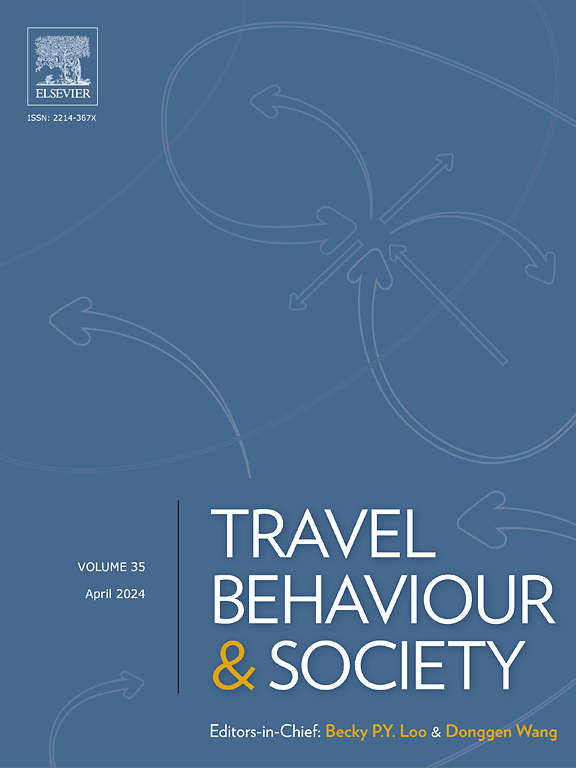Rethinking ‘discretionary’ travel: The impact of night and evening shift work on social exclusion and mobilities of care
IF 5.1
2区 工程技术
Q1 TRANSPORTATION
引用次数: 0
Abstract
Night and evening shift workers play critical roles in the modern economy, yet the mobility implications of working at these times is understudied. Shift workers’ schedules are mis-aligned with the schedules of their families and most of society, complicating their contribution to household-serving travel and their participation in social activities. This study models the effects of working nights and evenings on household-serving and social trips, including social trips with other householders. I apply binary logistic and Poisson regression with block bootstrapping to the 2017 U.S. National Household Travel Survey, which contains records for over 160,000 travelers recruited through stratified random sampling of U.S. addresses. Night and evening shift workers are less likely to make a trip for recreation, visiting others, or eating out, on days that they work. Shift workers are also less likely to conduct household-serving trips on days that they work, and this effect is amplified for women with regards to errands and shopping. When people work impacts what activities they can participate in, including whether they join in social activities with other household members. These results demonstrate the limitations of understanding social trips as ‘discretionary,’ in that these activities are still subject to coupling constraints that make it difficult for some groups of people to participate. These impacts hold negative implications for the mental health and wellbeing of shift workers.
重新思考“自由”旅行:夜班和夜班工作对社会排斥和护理流动性的影响
夜班和夜班工人在现代经济中发挥着关键作用,但在这些时候工作的流动性影响尚未得到充分研究。轮班工人的时间表与他们的家庭和大多数社会的时间表不一致,使他们在家庭服务旅行和参与社会活动方面的贡献复杂化。本研究模拟了夜间和夜间工作对家庭服务和社交旅行的影响,包括与其他户主的社交旅行。我将二元逻辑和泊松回归与块引导应用于2017年美国全国家庭旅行调查,该调查包含通过分层随机抽样美国地址招募的超过16万名旅行者的记录。夜班和夜班工人在工作的日子里不太可能外出娱乐、拜访他人或外出就餐。倒班工人也不太可能在上班的日子里外出做家务,而这种影响在女性出差和购物时被放大了。人们工作的时间会影响他们可以参加的活动,包括他们是否与其他家庭成员一起参加社会活动。这些结果表明了将社交旅行理解为“自由裁量”的局限性,因为这些活动仍然受到耦合约束,使某些群体难以参与。这些影响对倒班工人的心理健康和福祉有负面影响。
本文章由计算机程序翻译,如有差异,请以英文原文为准。
求助全文
约1分钟内获得全文
求助全文
来源期刊

Travel Behaviour and Society
TRANSPORTATION-
CiteScore
9.80
自引率
7.70%
发文量
109
期刊介绍:
Travel Behaviour and Society is an interdisciplinary journal publishing high-quality original papers which report leading edge research in theories, methodologies and applications concerning transportation issues and challenges which involve the social and spatial dimensions. In particular, it provides a discussion forum for major research in travel behaviour, transportation infrastructure, transportation and environmental issues, mobility and social sustainability, transportation geographic information systems (TGIS), transportation and quality of life, transportation data collection and analysis, etc.
 求助内容:
求助内容: 应助结果提醒方式:
应助结果提醒方式:


